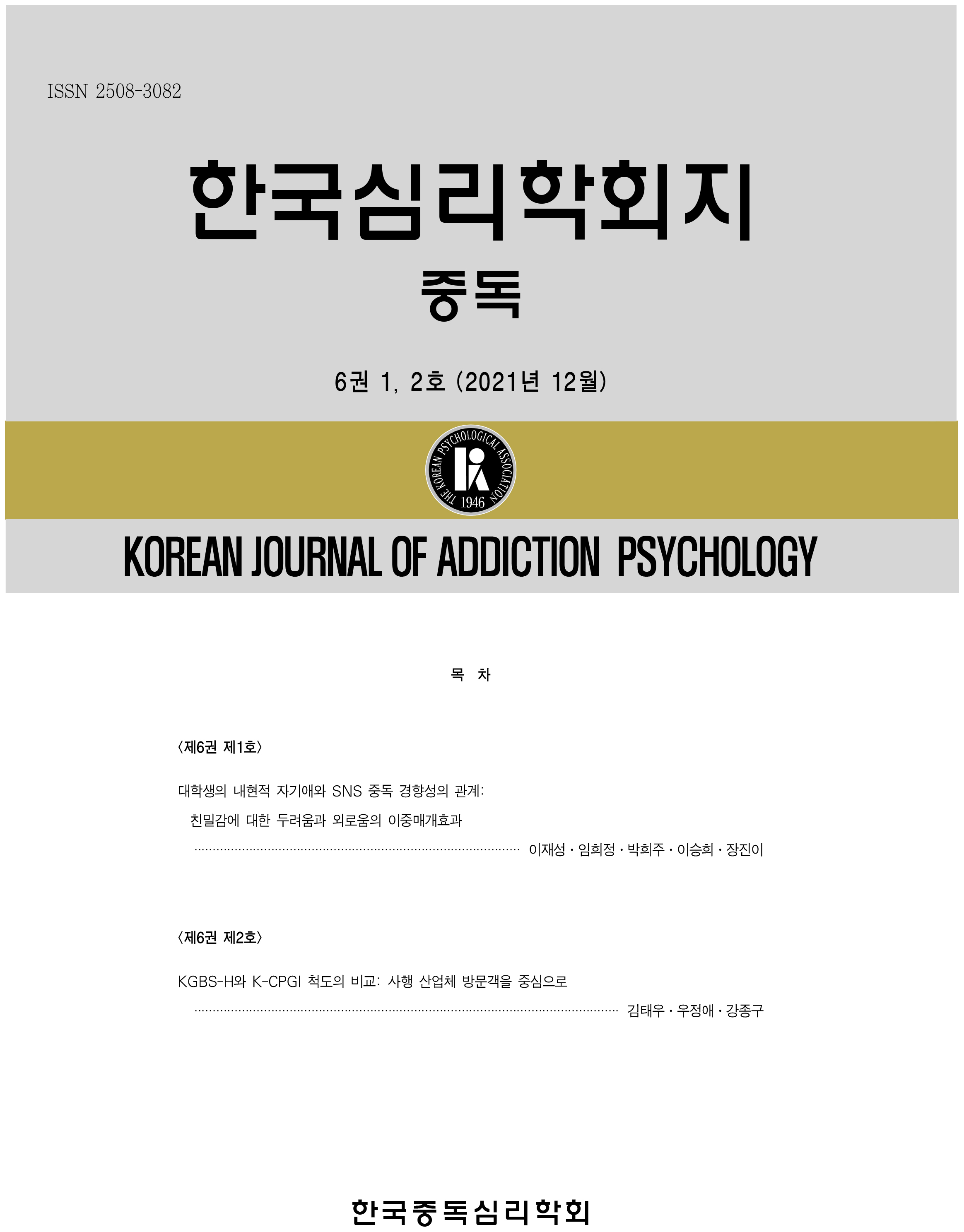Korean Journal of Addiction Psychology
- Log In/Sign Up
- P-ISSN2508-3082
 ISSN : 2508-3082
ISSN : 2508-3082
A review of alcohol studies using ecological momentary assessment
Jueun Kim (Chungnam National University)
Abstract
Ecological momentary assessment (EMA) allows subjects to report on their drinking experiences in a natural environment and may improve our understanding of the subjects’ alcohol use more than experimental or retrospective studies can. EMA has been widely used in studies of alcohol use in other countries, but few EMA studies in the alcohol field exist in Korea. In this study, we aimed to explore and examine the most frequently studied topics and findings and how EMA was used in each study. Recent research has used EMA to examine alcohol-related variables, such as affect, drinking motivation, alcohol cravings, environmental factors, and biomarkers for alcohol use. The studies on affect have focused on negative affect, positive affect, and affective instability, and studies on drinking motivation have been conducted based on the theory of the four motivational models of alcohol use. The studies on alcohol cravings observed participants’ drinking behaviors after being exposed to alcohol-related cues and examined the 24-hour rhythm of alcohol cravings. The studies on environmental factors concerned the location of drinking and the presence of drinking companions. Finally, studies on biomarkers related to alcohol use have used estimated blood alcohol concentration, electrodermal activity, and heart rate variability. Based on these results, the necessity and future directions of EMA considering domestic drinking culture and characteristics have been suggested.
- keywords
- ecological momentary assessment, alcohol use, review study
- Submission Date
- 2022-12-01
- Revised Date
- Accepted Date
- 2022-12-31
- Downloaded
- Viewed
- 0KCI Citations
- 0WOS Citations
